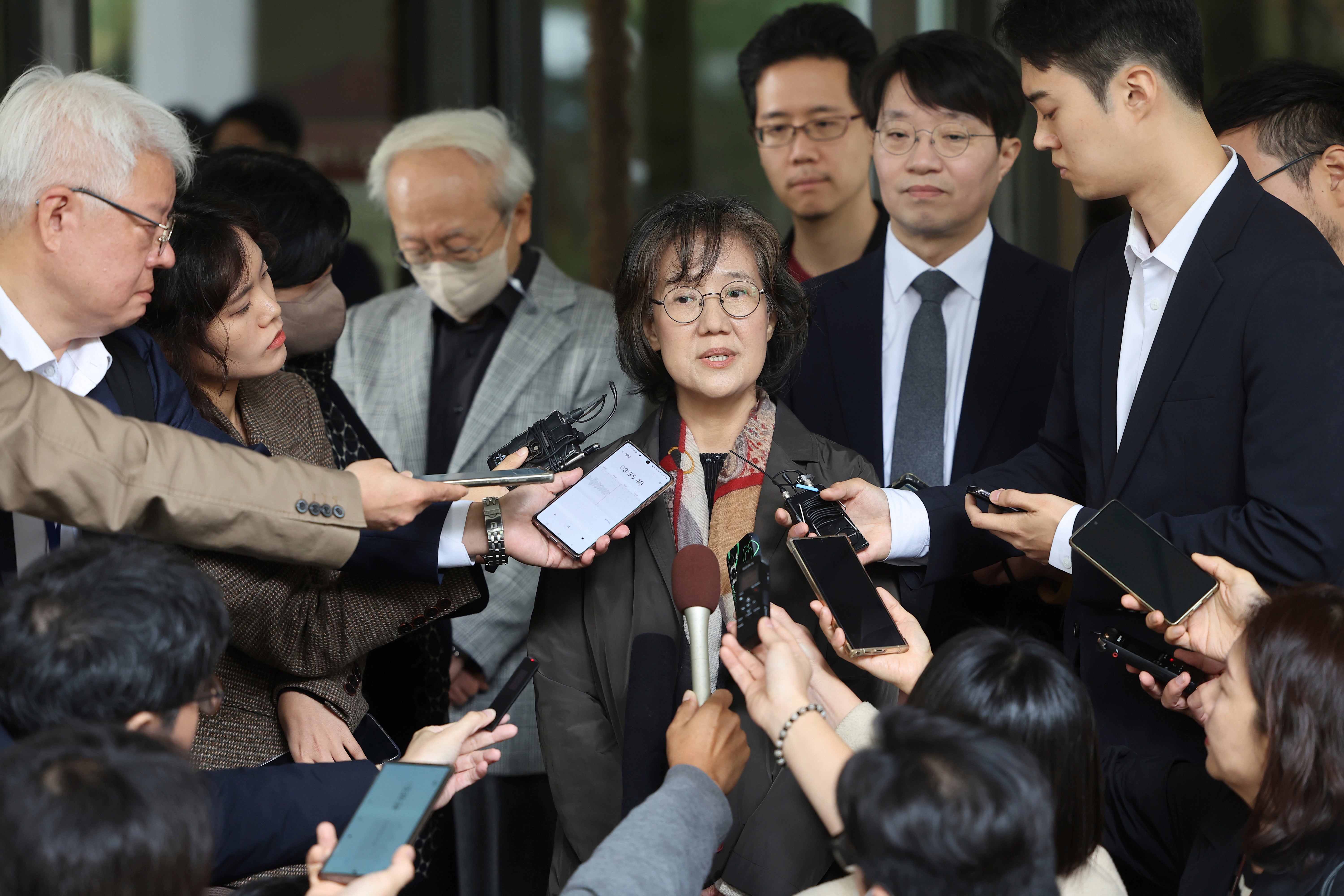South Korean scholar acquitted of defaming sexual slavery victims during Japan colonial rule
South Korea’s top court has cleared a scholar of charges that she defamed Korean sexual slavery victims during the Japanese colonial rule in her contentious book published in 2013

South Korea’s top court on Thursday cleared a scholar of charges of defaming the Korean victims of sexual slavery during Japanese colonial rule, in a contentious book published in 2013.
Thursday’s ruling in the criminal case of Park Yu-ha isn’t the end of her long-running legal battle, as she faces a separate civil suit. She’s suffered harsh public criticism over her book “Comfort Women of the Empire,” triggering debates over the scope of freedom of speech in South Korea.
In 2017, the Seoul High Court fined Park, an emeritus professor at Seoul’s Sejong University, 10 million won ($7,360) over some of the expressions she used in her book to describe Korean women who were forced to serve as sex slaves for Japan’s troops during the first half of the 20th century.
But the Supreme Court ruled Thursday it was difficult to determine those expressions constituted criminal defamation, saying it was more appropriate to assess them as Park’s academic arguments or expression of her personal opinions.
The court said that “restrictions on the freedom of academic expressions must be minimal.” It still said that when scholars publicize their studies, they must strive to protect others’ privacy and dignity and to respect their freedom and rights to self-determination.
Prosecutors and Park’s critics earlier accused her of defaming ex-sex slaves by writing that they were proud of their jobs and had comrade-like relationships with Japanese soldiers while the Japanese military wasn’t officially involved in the forceful mobilization of sex slaves.
The Supreme Court said it sent Park’s case back to the Seoul High Court to make a new ruling on her. The procedure means that Park will be declared not guilty at the high court unless new evidence against her come out, according to Supreme Court officials.
Park welcomed the ruling. “I think today’s verdict is a ruling that determines whether the freedom of thought exists in Republic of Korea,” she wrote on Facebook.
In a separate civil suit, a Seoul district court in 2016 ordered Park to pay 10 million won ($7,360) each to nine of the ex-Korean sex slaves who sued her. An appellate trial on that case is still under way, according to media reports.
Sexual slavery is a highly emotional issue in South Korea, where many still harbor strong resentment against the 1910-45 Japanese colonial occupation.
Historians say tens of thousands of women from around Asia, many of them Korean, were sent to front-line military brothels to provide sex to Japanese soldiers. The term “comfort women," which was used in the title of Park's book, is an euphemism for the sex slaves.
Japan issued an apolog y in 1993 after a government investigation concluded many women were taken against their will and “lived in misery under a coercive atmosphere.” However, there has been a strong backlash from South Korea and elsewhere to comments by Japanese politicians who speak about a lack of documentary proof the women were forcibly recruited, in an apparent attempt to gloss over Tokyo's wartime atrocities.
Bookmark popover
Removed from bookmarks